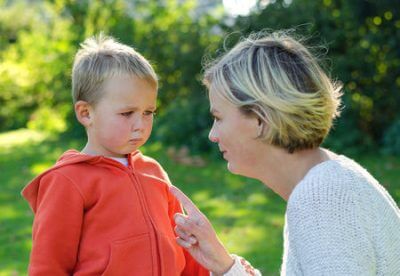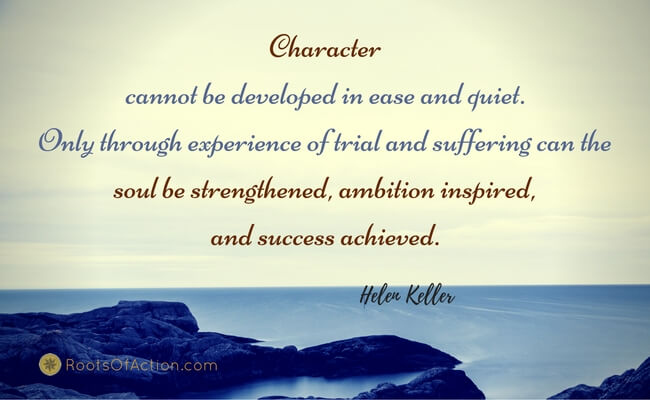
“No.” This simple two-letter word is often absent from our parenting vocabulary. Yet, a firm “no” can be a positive developmental tool for building resiliency in children.
In parenting today, we are encouraged to focus so absolutely on our children’s happiness, self-esteem, and emotional health. It is perhaps this that has lead us to tip-toe around the upsetting, self-esteem-derailing, possibly emotionally rattling experience of our children hearing a “no.” The problem is that resilience, a core human ability, cannot develop if life’s inevitable and necessary “no’s” are constantly sidestepped.
Why is “Yes” so Often Our Go-To Response?
First, never before have parents been so inundated with information. We swim around in the google-izeable world of “parenting” and are thus launched into the awful experience of second-guessing. “No” quickly becomes shaky or even elusive when in the back of our minds, we are constantly asking “Am I sure?” or “What if I wreck them?” Parents have got to have swagger, and sometimes our information-overload culture robs us of that.
Second, we have become collectively obsessed with the idea of “success.” The trickle down is that our children are being pushed, at younger and younger ages, to “get ready” for school, get ready for life! As parents we frantically adopt mechanized strategies in order to secure the ultimate reward – a successful child. For example, “only praise effort and never praise outcomes.” Or, “time is your child’s love currency so make sure you spend no less than 20 minutes in focused playtime with your child each day.” Or, “saying “no” must always be followed by an affirming statement of self-worth.” And so it goes. The problem is that through the eyes of the child, these strategies come off as soul-less. They are the desperate ploys of parents who don’t really have their game on, but rather, are acting from a place of fear that betrays the true needs of the child in the service of so-called success.
And finally, parents today are exhausted and often cannot summon the reserves required to hold the line at “no” regardless of the fallout. We work long hours. We are constantly connected via our screens to work, school, and life. We run around to the 27 programs we have our kids enrolled in so they can be “successful.” And we are out of steam. So if a “no” requires energy, and a “yes” is easy, then a “yes” it is!
Resiliency Requires a Caring Parent Who is in Charge
A key part of developing resiliency and helping children grow to become their best selves is a child’s opportunity to depend on the leadership of a caring adult. It is in this state of dependence that the work of child development unfolds. Dependence frees kids to direct all of their energies at being children, and growing as nature intended.
If, instead, children look around and see no one in charge, it is actually an intolerable state for their developing minds. And so rather than waiting for disaster to befall them, children will hop into the proverbial driver’s seat and take charge. When children – untrained in the art of steering, braking, and maneuvering – are in the driver’s seat, they can’t possibly end up at their intended destinations.
Children need us to step up and lead, including saying “no” when appropriate.
The Developmental Power of “No” in Fostering Resiliency
It is only when children learn to accept what cannot be that they come to terms with what is. Through this process, children learn to become flexible and adaptable – abilities necessary for resiliency to take root. The more opportunities children have to face upset about the necessary and unavoidable “no’s” of life in the caring embrace of a special adult, the more children also become capable of regulating their emotions. In fact, this regulation sets in neurologically and becomes part of how children’s brains grow.
How to Deliver a Nurturing “No”
Should we charge around dropping a bunch of “no’s” all over the place to help our children develop resiliency? Of course not.
“No” for the sake of “no” is just another silly gimmick that usually lands parents in the passenger’s seat. Our delivery of a “no” must be informed by normal things – like safety, finances, how much energy we have in reserve, how okay or not okay our children are in that moment – and all the other things that in-charge parents get to figure out. And really, we don’t need to troll through the whole list to determine if we should be giving a “yes” or a “no.”
Be aware, be conscious, be attuned. And then step solidly into your place as the in-charge adult in the parent-child relationship.
As we deliver those “no’s” to our children, remember they must be given in the spirit of compassion AND with leadership in order to foster resiliency and positive development. If parents are harsh in the delivery of a “no” it can land them back in the passenger seat while children take over the wheel. To be truly in charge we must be both firm AND kind.
I like to encourage parents to use the “No…I know…” sentence builder. So maybe it is “No, you can’t have a cookie before dinner… I know you are disappointed – I think I would be too if I were you.” I explain this type of sentence builder in the following video:
Tears and anger may come for our children. But if we hold onto soft kindness while also holding onto a firm “no”, all is exactly as it needs to be for adaptation to occur and resiliency to blossom.
Photo Credit: D. Tarasenko
Published: September 27, 2016




